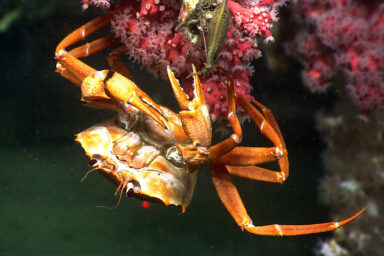At Olympics, Cybersecurity Concerns Linger in Background
PICKS are stories from many sources, selected by our editors or recommended by our readers because they are important, surprising, troubling, enlightening, inspiring, or amusing. They appear on our site and in our daily newsletter. Please send suggested articles, videos, podcasts, etc. to picks@whowhatwhy.org.
At Olympics, Cybersecurity Concerns Linger in Background (Maria)
The author writes, “Warnings to use disposable ‘burner’ phones and laptops. Privacy-protecting software. Concerns about a security flaw in an official [Olympic] Games smartphone app. Such precautions fueled unease about data privacy for competitors and attendees at the Winter Olympics in Beijing. Not everyone heeded them. … Nefarious cyber activity is a flashpoint in the geopolitical rivalry between China and the West. Beijing has long been accused by the US and technology watchdogs of widespread online snooping and data pilfering, allegations it denies. Now that the Games are ending and some 16,000 athletes, organizers, journalists and other visitors are heading home, concerns turn to what malware and other problems those who failed to heed the warnings might be carrying with them.”
A Russian Invasion of Ukraine Would Be Unlike Most Wars in 80 Years (Reader Jim)
The author writes, “A Russian invasion of Ukraine seems likely to involve one of the world’s largest militaries launching an unprovoked ground invasion of a neighboring country. The apparent goal would be an expansion of regional dominance, either through annexation or the establishment of a puppet government. Few other conflicts since World War II fit this description. Some of the closest analogies are the Soviet Union’s invasion of Afghanistan in the 1970s, Czechoslovakia in the 1960s and Hungary in the 1950s — as well as Vladimir Putin’s 2014 annexation of Crimea. The US, for its part, invaded Panama in the 1980s and used the CIA to overthrow an elected government in Guatemala in the 1950s. Of course, it also launched several faraway wars, in Iraq, Vietnam and elsewhere.”
Pacific Northwest Court Case Endangers Tribal Rights Nationwide (Dan)
From Indian Country Today: “In August 2021, a Ninth Circuit decision gave federal judges powers over tribes they do not have under the Constitution — the unilateral right to ignore tribal treaty signatories and judicially nullify the reserved hunting and gathering rights of a tribe’s citizens in perpetuity. This is one of the most dangerous federal cases involving tribal rights in decades, yet the vast majority of tribes are unaware.
US Restricts Importation of Some Afghan Archaeological, Ethnological Material (Carina)
From Reuters: “The United States has imposed restrictions on importation of certain categories of Afghan archaeological and ethnological material into the US, the State Department said on Tuesday. ‘These import restrictions are intended to prevent illicitly trafficked materials from entering the US art market, thus reducing the incentive for pillage of Afghanistan’s cultural heritage and combating profit from the sale of these cultural objects by terrorists and criminal organizations’, the State Department said in a statement.”
Commentary: What’s Less Fair Than the SAT? You Might Be Surprised (Reader Steve)
The author writes, “The University of California is rightly concerned about making its student application process as equitable as possible, yet it’s clinging to part of the application that clearly benefits wealthy students. …What UC inexplicably is holding on to, though, is the essay portion of its application, even though a 2021 report from Stanford University found that high-quality essays for UC applicants were even more tightly correlated with family income than the standardized tests.
A Mysterious Desert Bacterium Has Evolved Its Own, Unique Ability to Photosynthesize (Mili)
The author writes, “Now researchers have caught a cunning species of bacteria with stolen photosynthesizing technology. And their molecular, light-eating device is unlike any we’ve ever seen. ‘The architecture of the complex is very elegant. A real masterpiece of nature,’ says Michal Koblizek from the Czech Academy of Sciences’ Institute of Microbiology. ‘It has not only good structural stability, but also great light harvesting efficiency.’ While we know of plenty of photosynthetic bacteria already, what’s happening inside Gobi desert dwelling Gemmatimonas phototrophica is unique.”



